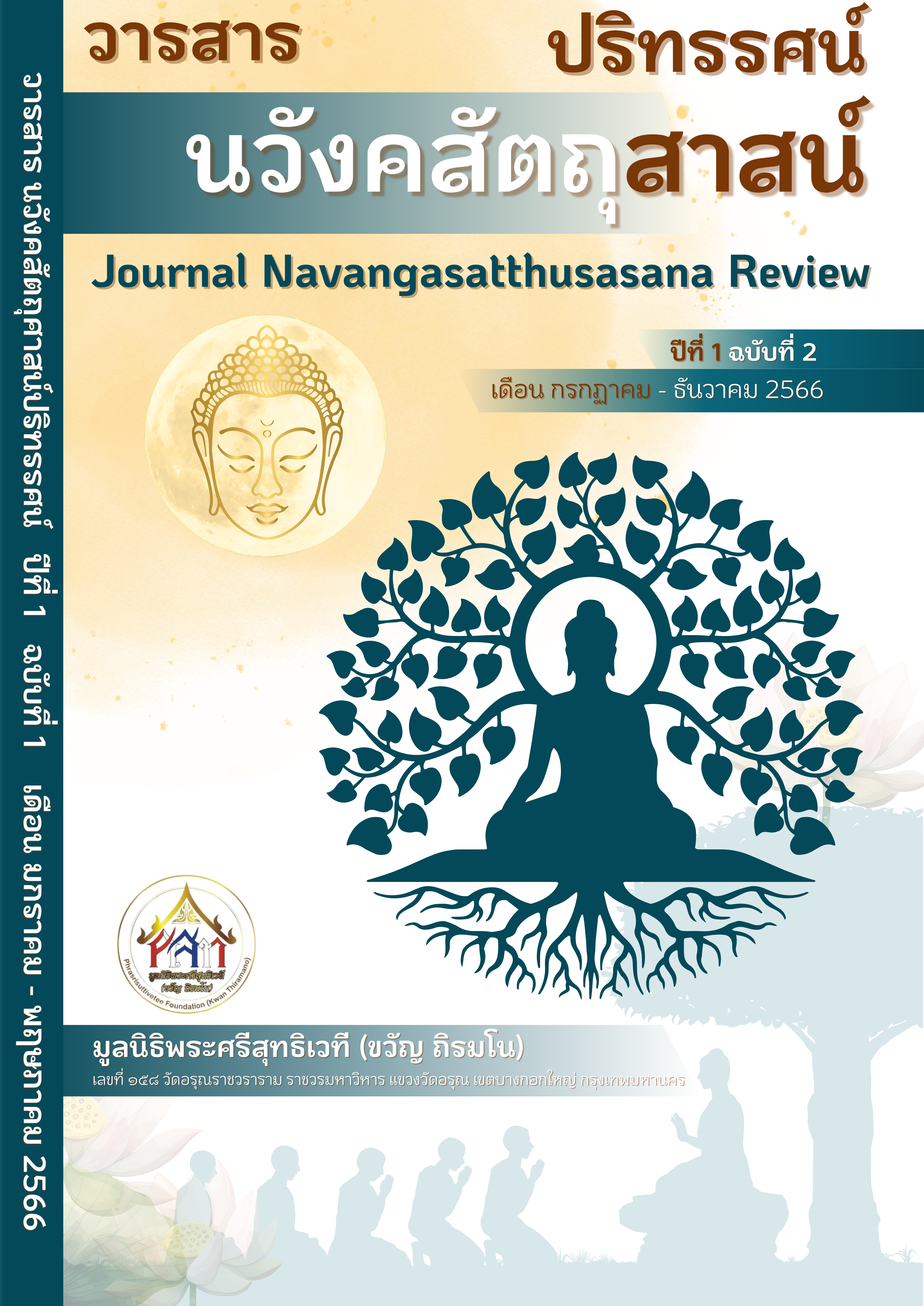Public Administration Good Governance 4.0
Main Article Content
Abstract
At present, every private and state organization in almost every country has adopted good governance as a management principle. Even though the system of good governance is recognized as effective system, providing management with excellent efficiency, but still found that in terms of practicality, there found corruption, moral outcomes are still less and ineffective because morality is a matter of quality of good mind and honestly sharing self-interest, others and society. To develop the mind to be virtuous, good must have knowledge, deep understanding and realizing moral values. Buddhism emphasizing on mental development assures that goodness comes from wholesome mind, which will occur only when 1) one has practiced awareness, knowing oneself and things around correctly, 2) compassion, kindness, caring for others. Such virtues require righteous learning and practice proven by yourself and others. Awareness notes the mind from mental corruption. In general, people are often concocted with unwholesome mind, that is, delusions that cause greed and wrath. Selfishness causes various forms of corruption. Loving-kindness, compassion and equanimity produce mental maturity, leadership with morals. It has a positive effect on one's self: 1) a calmful mind with charity, being happy in oneself and causing others happy, and 2) working with sincerity, without selfishness, but with responsibility, and for others; 1) to be loved and respected by others, 2) making decisions with fairness, focusing on wholesomeness and prosperity, 3) love and unity in the organization, 4) all members live and work with love, respect each other through good deeds, conversation and wishes, which will result in an effective management in accordance with the principles of good governance.
Article Details

This work is licensed under a Creative Commons Attribution-NonCommercial-NoDerivatives 4.0 International License.
เนื้อหาและข้อมูลในบทความที่ลงตีพิมพ์ในวารสาร นวังคสัตถุสาสน์ปริทรรศน์ถือเป็นข้อคิดเห็นและความรับผิดชอบของผู้เขียนบทความโดยตรงซึ่งกองบรรณาธิการวารสาร ไม่จำเป็นต้องเห็นด้วย หรือร่วมรับผิดชอบใด ๆ บทความ ข้อมูล เนื้อหา รูปภาพ ฯลฯ ที่ได้รับการตีพิมพ์ในวารสาร นวังคสัตถุสาสน์ปริทรรศน์ถือเป็นลิขสิทธิ์ของวารสาร นวังคสัตถุสาสน์ปริทรรศน์หากบุคคลหรือหน่วยงานใดต้องการนำทั้งหมดหรือส่วนหนึ่งส่วนใดไปเผยแพร่ต่อหรือเพื่อกระทำการใด ๆ จะต้องได้รับอนุญาตเป็นลายลักอักษรจากวารสาร นวังคสัตถุสาสน์ปริทรรศน์ก่อนเท่านั้น
References
เจริญ เจษฎาวัลย์. การตรวจสอบธรรมาภิบาล ทฤษฎีและภาคปฏิบัติ (Governance Audit Theory and Practice). นนทบุรี: บริษัท พอดี จำกัด, 2547.
ธีรยุทธ บุญมี. ธรรมรัฐแห่งชาติยุทธศาสตร์กู้หายนะประเทศไทย. กรุงเทพมหานคร: สำนักพิมพ์
สายธาร, 2541.
บุษบง ชัยเจริญวัฒนะ และบุญมี ลี้. ตัวชี้วัดธรรมาภิบาล (Indicators of Good Governance). กรุงเทพมหานคร: สถาบันพระปกเกล้า, 2546.
ปรีชา ช้างขวัญยืน. ธรรมรัฐ ธรรมราชา. กรุงเทพมหานคร: โครงการตำราคณะอักษรศาสตร์ จุฬา
ลงกรณมหาวิทยาลัย, 2542.
พระธรรมปิฎก (ประยุทธ์ ปยุตฺโต). ธรรมนูญ: พุทธจริยธรรมเพื่อชีวิตที่ดีงาม. พิมพ์ครั้งที่ 11. กรุงเทพมหานคร: มูลนิธิพุทธธรรม, 2545.
พระพรหมคุณาภรณ์ (ป.อ. ปยุตฺโต). การงานที่เป็นสุข, กรุงเทพมหานคร: โรงพิมพ์ธรรมสภา, 2549.
_________. พจนานุกรมพุทธศาสตร์ ฉบับประมวลธรรม. กรุงเทพมหานคร: สหธรรมิก, 2551.
มหาจุฬาลงกรณราชวิทยาลัย. พระไตรปิฎกภาษาไทย ฉบับมหาจฬาลงกรณราชวิทยาลัย. กรุงเทพมหานคร: โรงพิมพ์มหาจุฬาลงกรณราชวิทยาลัย, 2539.
ยั่งยืนธีระพล อรุณะกสิกร. ระเบียบสํานักนายกรัฐมนตรีว่าด้วยการสร้างระบบการบริหารกิจการบ้านเมืองและสังคมที่ดี พ.ศ. 2542. กรุงเทพมหานคร: สำนักพิมพ์ วิญญูชน, 2542.
สถาบันพระปกเกล้า. วัดระดับการบริหารจัดการที่ดี. พิมพ์ครั้งที่ 3. นนทบุรี: บริษัท พิมพ์ดี จำกัด, 2550.
สมพงษ์ ชูมาก. ความสัมพันธ์ระหว่างประเทศ (ทศวรรษ 1990 และแนวโน้ม). กรุงเทพมหานคร: สำนักพิมพ์จุฬาลงกรณ์มหาวิทยาลัย, 2542.
สำนักงานคณะกรรมการข้าราชการพลเรือน. แผนปฏิรูประบบบริหารภาครัฐ. กรุงเทพมหานคร:กองกลาง สำนักงานคณะกรรมการข้าราชการพลเรือน, 2544.
เอเจอร์ แซม. ธรรมาภิบาลการปกครองที่โปร่งใสด้วยจริยธรรม. กรุงเทพมหานคร: โรงพิมพ์ น้ำฝน, 2545.


